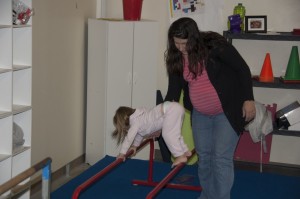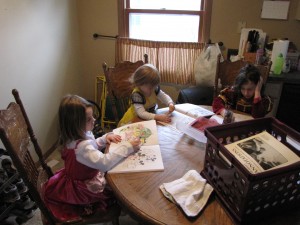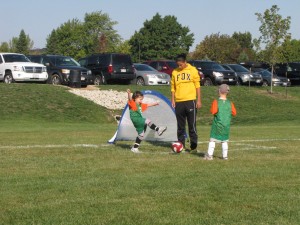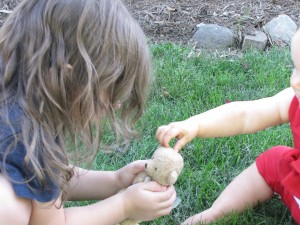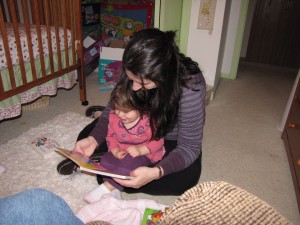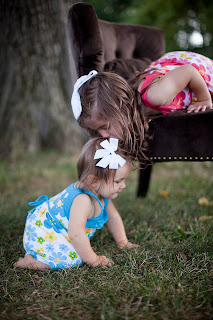Category Archives: balance
Piety or Knowledge?
I have written before of the battle between holiness and justice. Some say we are to focus on our own moral purity, on becoming more like Jesus. Others say we are to focus on social justice for others, on being Jesus to those around the world.
When describing the wickedness of Israel, Isaiah says “He looked for justice, but saw bloodshed; for righteousness, but heard cries of distress.”
It seems that one of the Deceiver’s favorite ploys is to take a set of discipleship practices, a pairing that works best when done in concert with each other, and separate them, throwing them into battle with each another. In doing so, he not only diminishes the efficacy of both practices but he also divides the very body of Christ.
Clearly both holiness and justice are important. We should not focus on half of God’s commands to the exclusion of the rest.
Another battle I’ve been trying to understand is the battle between piety and knowledge.
Is it better to obey God, to act on His behalf, or is it better to learn about God, to know what it is He commands?
Some would say that knowledge is too dry, that the life of the mind is on par with selfishness. It brings to mind ivory towers and keeping oneself unsullied by the realities of the real world.
While it is true that focusing solely on knowledge and learning would keep one from ever actually helping this world of hurting people, modern church culture seems to lean too heavily in the direction of anti-intellectualism. There is a growing spirit of pragmatism in our churches. A spirit whose first question about an idea is not “Is it true?” but “Does it work?”.
“Young people tend to be activists, dedicated supporters of a cause, though without always inquiring too closely either whether their cause is a good end to pursue or whether this action is the best means by which to pursue it.” ~ Rev. John R. W. Stott in an address at the Inter-Varsity Fellowship Annual Conference
It seems this is another set of discipleship practices that when separated leads to reduced success.
On one hand you have people rushing crazily about for the next good idea regardless of the wisdom or truth of it, perhaps even causing more harm than good. On the other hand you have people sitting stagnant with their books, not allowing any of the knowledge of God to seep into their hearts and affect the world around them.
Both piety and knowledge are desperately needed together. Only with knowledge can you know what God truly wants, what is the wise action to take. Only with piety can your own heart be changed, can the hearts and lives of other people be changed.
Paul says in II Corinthians that we are to take every thought captive toward the obedience of Christ.
Piety and knowledge. Obedience and intellect. The heart and the mind.
Both are needed. Both are required to continue to bring about God’s kingdom here on earth.
Only together can these practices nourish “a warm and fruitful devotion set on fire by truth.” (Stott)
Living in Tension
We all live in a tension between seeming opposites, sliding between one extreme and the other as though we were children sliding back and forth across the kitchen floor in our footie pajamas.
We want to accomplish much during our day, and we wish we could curl up on the couch with a book or the remote.
We plead with a good god for help when things fall apart, and we wonder how any god but the cruelest sort could watch while life disintegrates.
We would die for our children, and we feel a strong urge to toss them out any nearby window.
We long to dream big and serve those who are suffering and downtrodden, and we despair that anything we could do could possibly make any difference.
We desire to follow after Christ with all that we are, and we secretly speculate whether He even exists.
Emotions are fickle and are often the source of these tensions that send us skidding back and forth in an attempt to live well. Even on our best days when we yearn to serve God with all of our heart, we feel unsure of what that really means.
One day we think that perhaps we should sell our home and move to the inner city. The next we think that perhaps God wishes for us to love our right-now neighbor whose cat has just dug up our roses.
One day we think that we should create something beautiful that will point millions to God. The next we think that we should write a letter to our uncle who needs to hear about love.
One day we think that God asks us to sacrifice much and preach gospel to those who despair. The next we think that God asks us to be obedient in small ways with the family and friends He has placed around us.
What do we do with these tensions? What do we do with these competing wishes and desires? Does God ask for big dreams and risky sacrifices or does He smile upon small acts of faithfulness and childlike demonstrations of obedience?
I am learning that He gives varying numbers of talents to different people, even varying tasks to the same people in different stages of their lives.
I am learning that He asks us to wait patiently for His call, to take one step of faith at a time, to carry out one obedient act that may lead to more. I am learning that He asks us to continue living in tension, knowing that those who get comfortable are not as easy to move, knowing that those who feel most at home in this world are not readying themselves or anyone else for a perfect home.
I am learning that just living in peace with this tension, taking each next step as He guides, is what we are meant to do, even when it doesn’t feel like quite enough.
A Precarious Perch
I sit at my kitchen table and stare out the window.
I am weary.
I see a robin settle on the tippy-est top of a tree.
The wind is blowing him fiercely as he desperately tries to keep his perch.
I feel a sudden kinship with this robin.
I, too, feel as though I live perched at the top of a tree, fighting to keep my place, leaning this way and that, re-balancing with a flap of my wings as people and circumstances gust all around me.
Trying to fix all the pieces of my husband that don’t quite suit me.
Trying to make my kids love God above all else.
Trying to force my heart to desire God more than anything else.
I offer “suggestions” to my husband that will help him to be more like I want him to be.
I plan activities galore to train my girls’ hearts toward God and their minds toward brilliance.
I read book after book to help me understand how to make my heart like God’s.
And I read this:
And I will give them one heart, and a new spirit I will put within them. I will remove the heart of stone from their flesh and give them a heart of flesh,
Come to me, all who labor and are heavy laden, and I will give you rest.
But the Helper, the Holy Spirit, whom the Father will send in my name, he will teach you all things and bring to your remembrance all that I have said to you. Peace I leave with you; my peace I give to you. Not as the world gives do I give to you. Let not your hearts be troubled, neither let them be afraid.
It shouldn’t be a startling conclusion. I am NOT the Holy Spirit. Neither are you.
Yet we so very often try to do His work for Him.
Rather, we must step aside and allow the Spirit to do His job. In His own timing.
I open my heart wide to His gentle teaching and reminding and, at least for this moment, give up my striving and balancing, allowing the Holy Spirit to surround me and give me rest and peace. Peace in knowing that He loves my family even more than I do.
He alone will heal and change our hearts.
Tolerance or Love?
Personal holiness or justice in our world?
If we have decided that “both” is the answer we believe, if we resolve to strive for both ideals, what do we do with those who disagree?
What do we do, for that matter, with anyone with whom we disagree?
We are exhorted by our leaders, our culture, to show tolerance to those around us. Everywhere I turn, I am pleaded with to be tolerant, to show tolerance to anyone who is different, anyone who thinks or behaves differently than I.
Is this what we who are Christ followers are called to be? Tolerant?
Is this really all that we can manage, all that we can aspire to do?
Tolerance is easy. It costs me nothing.
Tolerance shrugs its shoulders and walks away, leaving you to your own devices. Tolerance doesn’t care.
And the second is like it: “Love your neighbor as yourself.” ~ Matthew 22.39
Love is much harder.
Love affirms the reality of the other person, culture and way of life.
Love takes the trouble to get to know the other person and find out what makes them special.
Love wants what is best for that person or culture.
It was love that brought the world to oppose an apartheid regime in South Africa, not tolerance.
It was love that lead Martin Luther King to pursue civil rights, not tolerance.
It was love that drove William Wilberforce to lead the British parliamentary campaign to abolish the slave trade, not tolerance.
It was love that sent Jesus to the cross on our behalf, not tolerance.
Before November 6th and afterward, as I live my life in contact with people who are different than me, I will pray for strength to choose the harder way.
If I am to be Jesus to those around me, if I am to make a difference for Him in this world, I must choose love, not tolerance.
Love must confront Tolerance and insist, as it has always done, on a better way. ~ Tim Keller in Generous Justice
art credit: The Three Crosses etching by Rembrandt
Holiness or Justice?
I listen to them argue, watching as each shakes his head and smiles condescendingly while the other is speaking passionately about what he thinks is best.
Surface level respect doesn’t seem to go very far. Those who support each one seem to vilify the other, speaking ugly words of disrespect and hate.
Where should we who follow Christ fit in?
One group is concerned with personal morality, the other is focused on social justice.
Are we speaking of parties or churches? Is it telling that we sometimes cannot discern a difference?
When we bring religion into politics, can it turn people away from Christ? If I cannot agree with one set of ideas, yet that same idea set is anchored to Jesus, I may conclude that following Jesus is impossible.
Surely this breaks the heart of God.
Yet surely one passion is more important. Surely either personal morality or social justice should be our highest priority.
If I have a passion for justice, personal holiness may be simply a distraction.
If I desire to cultivate personal holiness, I may yet ignore working for justice in our world.
Perhaps, just perhaps, a balance is needed.
In describing what brings the wrath of God, Amos says
They trample on the heads of the poor as upon the dust of the ground and deny justice to the oppressed. Father and son use the same girl and so profane my holy name. ~ Amos 2.7
Personal holiness or justice in our world?
When describing the wickedness of Israel, Isaiah says
…He looked for justice, but saw bloodshed; for righteousness, but heard cries of distress. Woe to you who add house to house and join field to field till no space is left and you live alone in the land…Woe to those who rise early in the morning to run after their drinks, who stay up late at night till they are inflamed with wine. ~ Isaiah 5.7-8, 11
Personal holiness or justice in our world?
Jesus, when teaching the crowds how to live, spoke of refraining from lust, adultery and divorce. He also spoke of giving to the poor, refraining from overwork and resisting the siren call of materialism. All in the same chapter of the Bible. ~ Matthew 6
Personal holiness or justice in our world?
Perhaps, just perhaps, we should not choose one to the exclusion of the other. Perhaps we should strive to attain both ideals, following all of what Jesus teaches us rather than excusing away half of His commands.
And what should we do with each other? What do we do with our brother or sister who insists that another course is highest?
Perhaps we should speak of that next week.



